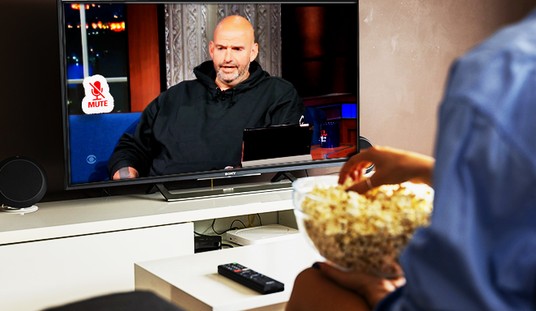This morning’s Gospel reading is John 9:1–41:
As Jesus passed by he saw a man blind from birth. His disciples asked him, “Rabbi, who sinned, this man or his parents, that he was born blind?” Jesus answered, “Neither he nor his parents sinned; it is so that the works of God might be made visible through him. We have to do the works of the one who sent me while it is day. Night is coming when no one can work. While I am in the world, I am the light of the world.” When he had said this, he spat on the ground and made clay with the saliva, and smeared the clay on his eyes, and said to him, “Go wash in the Pool of Siloam”—which means Sent—. So he went and washed, and came back able to see.
His neighbors and those who had seen him earlier as a beggar said, “Isn’t this the one who used to sit and beg?” Some said, “It is,” but others said, “No, he just looks like him.” He said, “I am.” So they said to him, “How were your eyes opened?” He replied, “The man called Jesus made clay and anointed my eyes and told me, ‘Go to Siloam and wash.’ So I went there and washed and was able to see.” And they said to him, “Where is he?” He said, “I don’t know.”
They brought the one who was once blind to the Pharisees. Now Jesus had made clay and opened his eyes on a sabbath. So then the Pharisees also asked him how he was able to see. He said to them, “He put clay on my eyes, and I washed, and now I can see.” So some of the Pharisees said, “This man is not from God, because he does not keep the sabbath.” But others said, “How can a sinful man do such signs?” And there was a division among them. So they said to the blind man again, “What do you have to say about him, since he opened your eyes?” He said, “He is a prophet.”
Now the Jews did not believe that he had been blind and gained his sight until they summoned the parents of the one who had gained his sight. They asked them, “Is this your son, who you say was born blind? How does he now see?” His parents answered and said, “We know that this is our son and that he was born blind. We do not know how he sees now, nor do we know who opened his eyes. Ask him, he is of age; he can speak for himself.” His parents said this because they were afraid of the Jews, for the Jews had already agreed that if anyone acknowledged him as the Christ, he would be expelled from the synagogue. For this reason his parents said, “He is of age; question him.”
So a second time they called the man who had been blind and said to him, “Give God the praise! We know that this man is a sinner.” He replied, “If he is a sinner, I do not know. One thing I do know is that I was blind and now I see.” So they said to him, “What did he do to you? How did he open your eyes?” He answered them, “I told you already and you did not listen. Why do you want to hear it again? Do you want to become his disciples, too?” They ridiculed him and said, “You are that man’s disciple; we are disciples of Moses! We know that God spoke to Moses, but we do not know where this one is from.” The man answered and said to them, “This is what is so amazing, that you do not know where he is from, yet he opened my eyes. We know that God does not listen to sinners, but if one is devout and does his will, he listens to him. It is unheard of that anyone ever opened the eyes of a person born blind. If this man were not from God, he would not be able to do anything.” They answered and said to him, “You were born totally in sin, and are you trying to teach us?” Then they threw him out.
When Jesus heard that they had thrown him out, he found him and said, “Do you believe in the Son of Man?” He answered and said, “Who is he, sir, that I may believe in him?” Jesus said to him, “You have seen him, and the one speaking with you is he.” He said, “I do believe, Lord,” and he worshiped him. Then Jesus said, “I came into this world for judgment, so that those who do not see might see, and those who do see might become blind.”
Some of the Pharisees who were with him heard this and said to him, “Surely we are not also blind, are we?” Jesus said to them, “If you were blind, you would have no sin; but now you are saying, ‘We see,’ so your sin remains.”
Those who have children will attest to the fact that they occasionally have very poor vision. For that matter, those of us who were children ourselves will admit to having that problem ourselves in our more honest moods. For instance, how often did we stare into a refrigerator so full of food that it would likely feed the whole block only to complain, “There’s nothing to eat!”
I’d often complain about not finding some object of great momentary importance and accuse everyone who ever had access to the house of having moved it. My parents would then respond that whatever I was looking for was likely somewhere in the three-foot layer of dirty clothes and books that covered my bedroom from wall to wall. Nonsense, I’d scoff, only to find it in the detritus. When I actually bothered to look, that is.
As Jonathan Swift wrote in Works of Thomas Chalkey, “There are none so blind as those who will not see,” emphasis mine. “The most deluded people are those who choose to ignore what they already know.” Put another way, ignorance is less of a problem because it can be cured with education. Willful blindness is much tougher to overcome. It is akin to a darkness which light will not penetrate.
In today’s Gospel and readings, we get two examples of a lack of clarity which turn out very differently from each other. In our first reading, the Lord commands the prophet Samuel to seek out Jesse of Bethlehem for the anointing of the next king of Israel. At this time, of course, Saul was king of Israel, a mighty warrior, but one that had turned away from the Lord’s purposes. In 1 Samuel 10, the Lord tells the prophet that “I repent that I have made Saul king,” as Saul had rebelled against His instructions.
In fact, although this is not included in today’s reading, the Lord also rebukes Samuel in sending him to Jesse. “How long will you grieve over Saul,” God tells Samuel, “seeing I have rejected him from being king over Israel?” Samuel appears to have been somewhat blinded by his love for Saul, but Samuel does not allow that to push him away from his calling to serve the Lord. He goes to Jesse’s house, where the Lord explains that Samuel cannot judge by outward appearance. “[F]or the LORD sees not as man sees; man looks on the outward appearance, but the LORD looks on the heart.” When Samuel takes that to heart, he is able to grasp that the Lord has not chosen any of the elder brothers but instead the youngest of the eight — who normally would have no inheritance or significant social stature.
Samuel overcomes his blindness through his devotion to the Lord. In our Gospel reading, however, the Pharisees offer the kind of willful blindness that threatens to become impenetrable. In addition, Jesus encounters another kind of blindness, that which assigns blames for afflictions on the afflicted rather than as a consequence of living in a fallen world. When the disciples see the beggar who was blind from birth, they automatically assume that it was a consequence of specific and individual sin. Jesus explains that affliction is not a punishment for sin, but instead an opportunity for all of us to work on God’s behalf.
“We have to do the works of the one who sent me while it is day,” Jesus says. “Night is coming when no one can work.”
For some, of course, night was already at hand. The disciples grasped the lesson, but the Pharisees repeatedly refused to consider it. This young beggar would have not been unknown to them in the past, so they would have known he had been born blind. Rather than consider the testimony at face value or test it honestly to ensure it was truthful, the Pharisees in this instance are clearly determined to grasp any theory to justify their rejection of the miraculous restoration of the man’s sight. They reject the beggar’s testimony not once but twice, the testimony of his parents, the testimony of other witnesses, and finally try to use a technicality about the Sabbath rather than deal with the truth. In the end, they judge the man unreliable for being “born totally in sin” — which they just assume — while implying that their spiritual state is better than his.
They would have been better off blind, Jesus tells the Pharisees, as the young man was. At least then they would have an excuse for not seeing, rather than the sinful manner in which they willfully blinded themselves to the truth.
It is this willful blindness that Christians must put aside, Paul writes in his letter to the Ephesians. Using a similar motif of darkness and light, Paul instructs the church at Ephesus that they need to “live as children of light” after being brought out of the darkness by Christ:
Try to learn what is pleasing to the Lord. Take no part in the fruitless works of darkness; rather expose them, for it is shameful even to mention the things done by them in secret; but everything exposed by the light becomes visible, for everything that becomes visible is light. Therefore, it says: “Awake, O sleeper, and arise from the dead, and Christ will give you light.”
Living as children of light does not mean having perfect knowledge or perfect vision. It does mean being open to the truth and the Word of God, and living a life that gives glory to the Lord through our embrace of His light. We are learning, as Paul exhorts, taking stumbling steps away from night by embracing God’s love and mercy rather than willfully blinding ourselves and forgetting even the truth we have been given.
The more we do that, the more we allow the Lord into our hearts and form our will to His. Only in that way will we truly awaken to the dawn of His glory.
The front page image is a detail of “Healing of the Blind Man” by Duccio di Buoninsegna, c. 1308, on display at the National Gallery in the UK. Via Wikimedia Commons.
“Sunday Reflection” is a regular feature, looking at the specific readings used in today’s Mass in Catholic parishes around the world. The reflection represents only my own point of view, intended to help prepare myself for the Lord’s day and perhaps spark a meaningful discussion. Previous Sunday Reflections from the main page can be found here. For previous Green Room entries, click here.








Join the conversation as a VIP Member